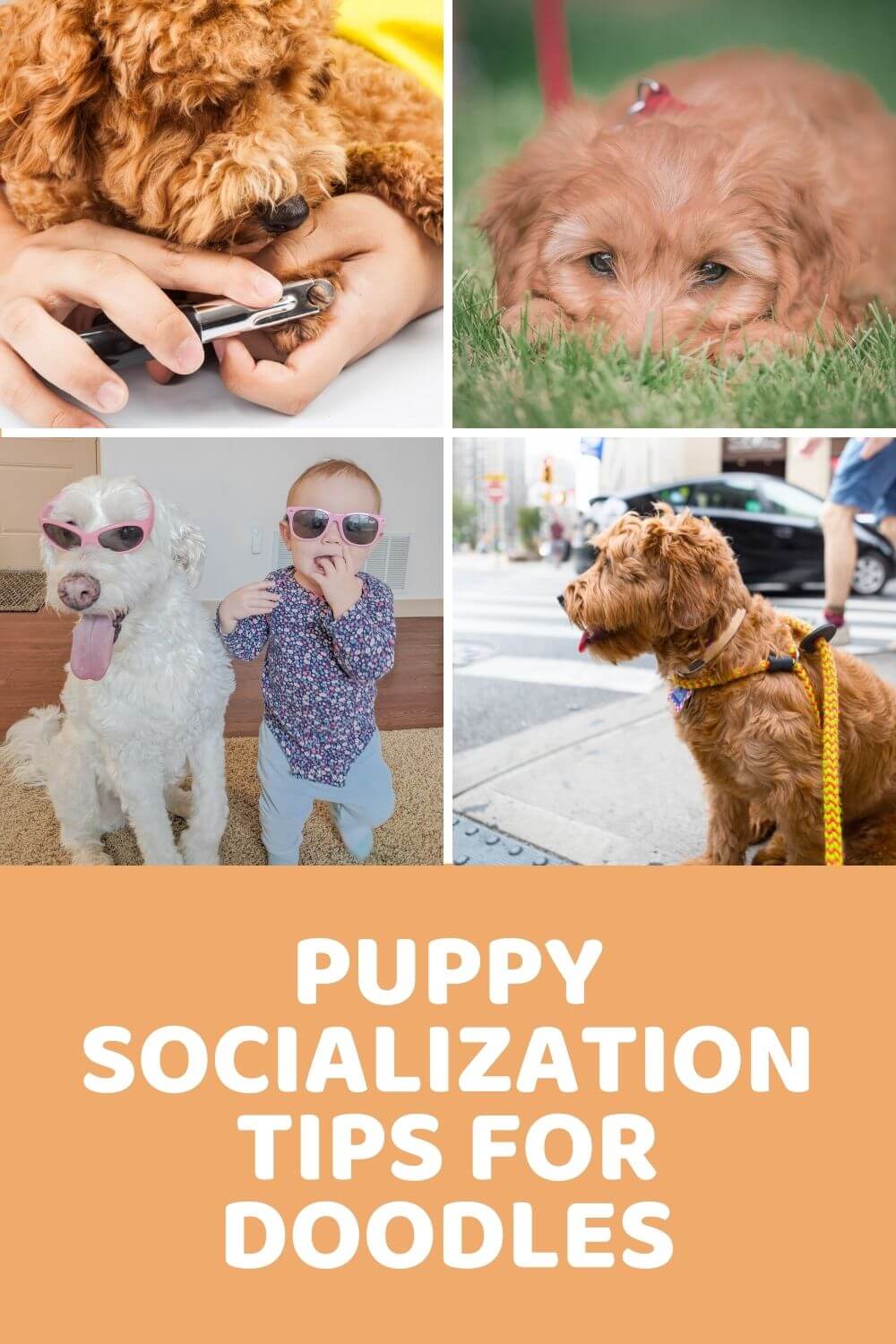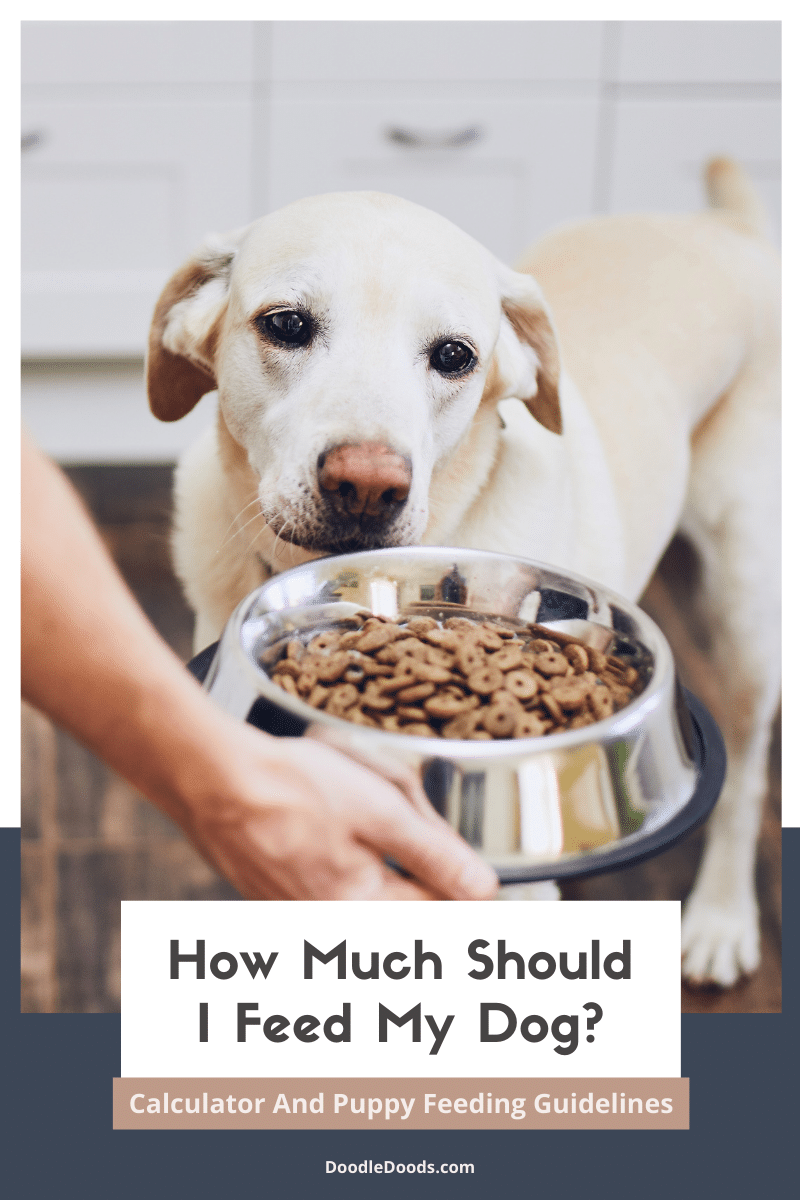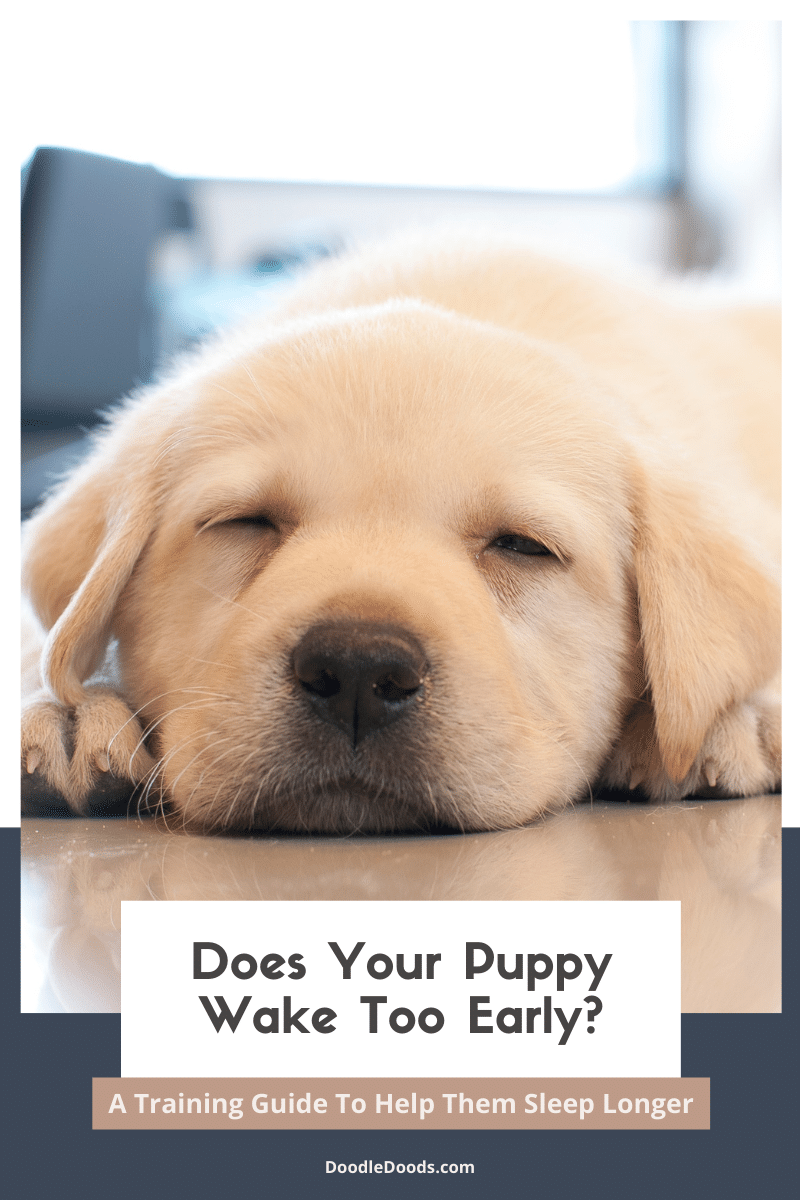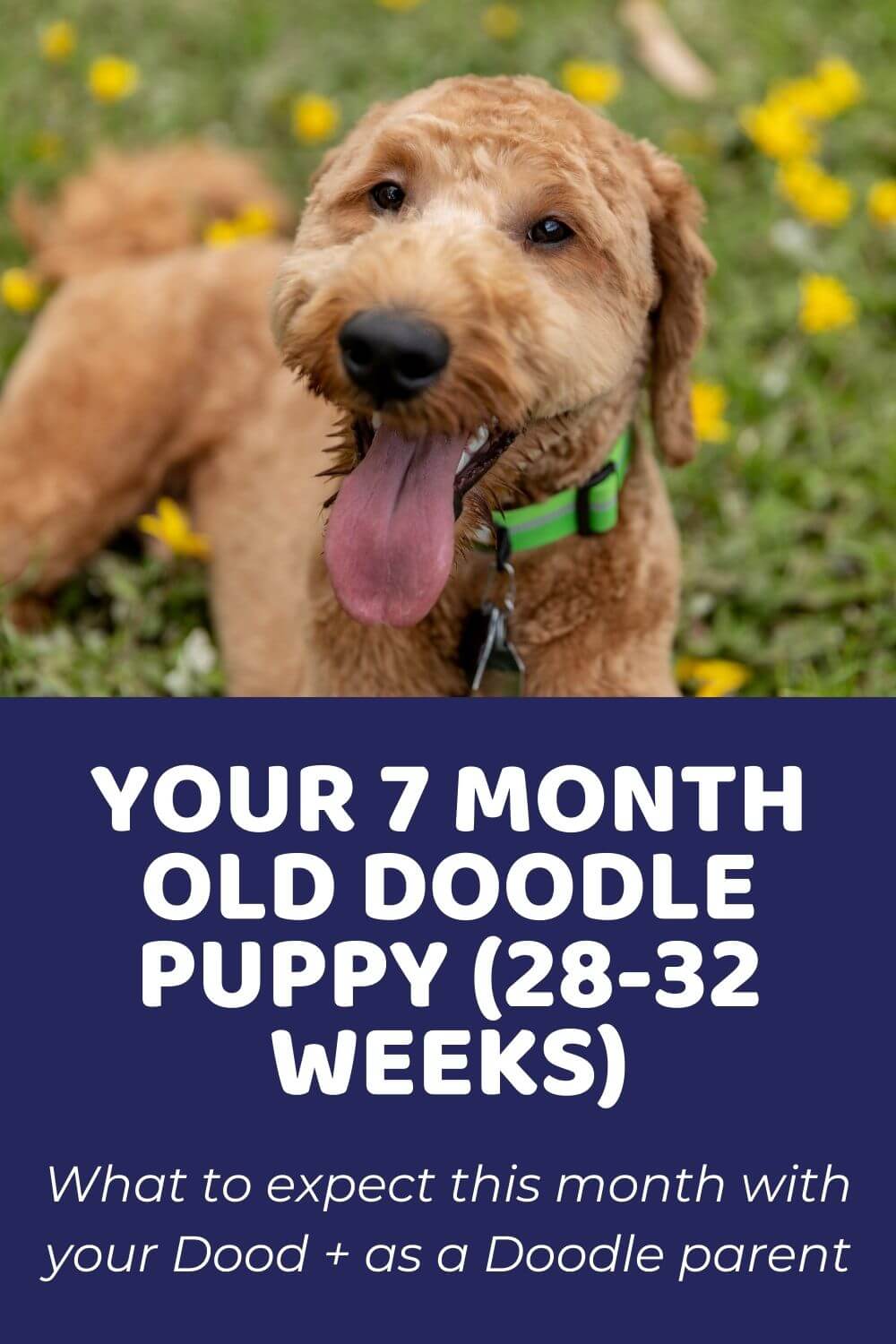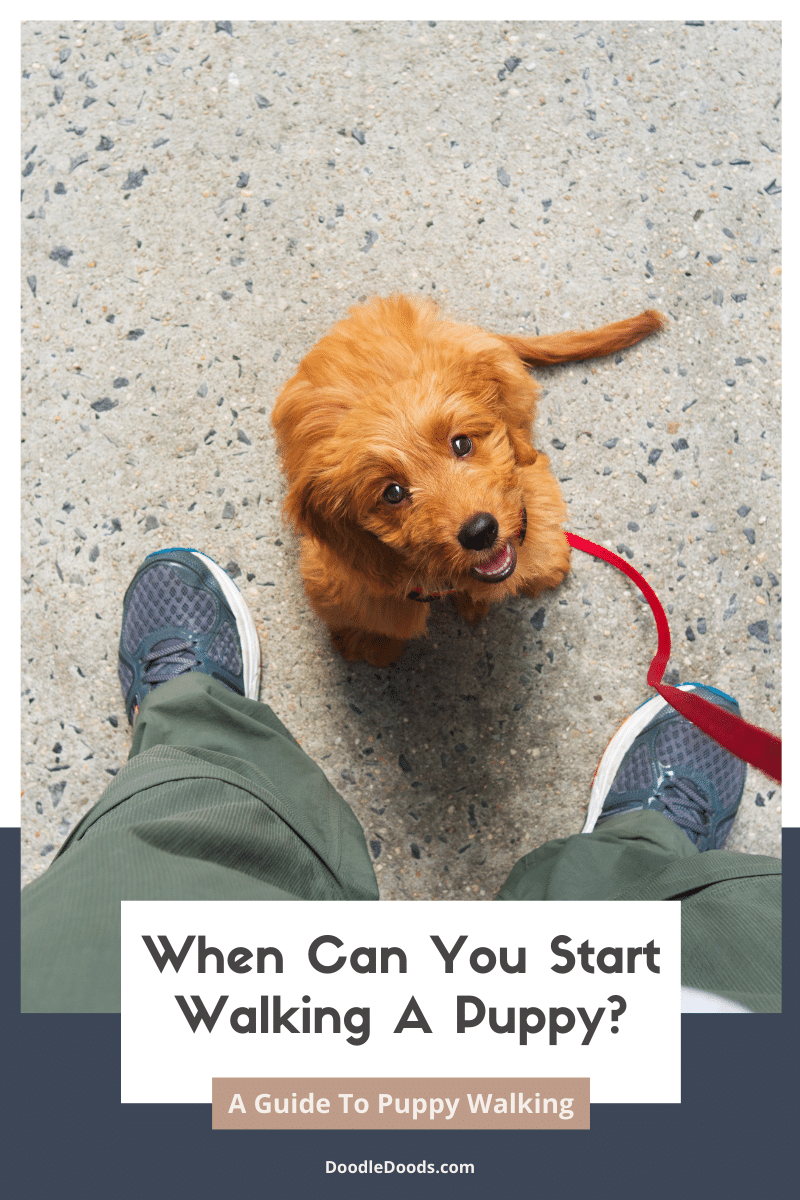In just 8 short weeks, your 2-month old puppy has grown and changed so much, but there’s still more change to come. Let’s take a look at how your 8-12 week old puppy is developing now.
Between 8-12 weeks is usually when a puppy leaves his first home and joins his forever family. You know what that means… PUPPY’S COMING HOME! (cue: the happy dance.) Do you have everything you need? Be sure to view our Doodle Puppy Checklist if you aren’t sure.
Learn How to Care for Your Doodle Puppy!
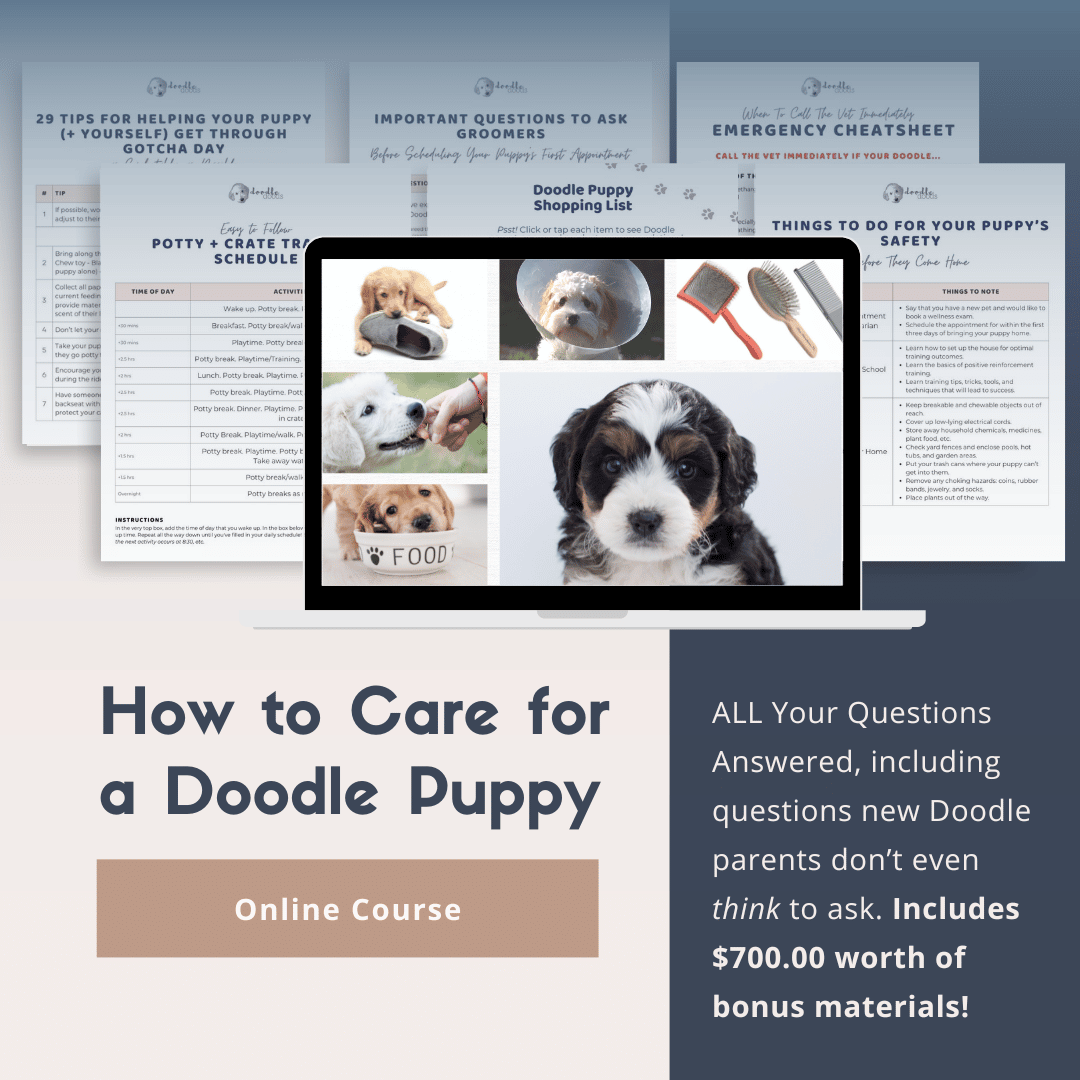
Perfect for first-time Doodle parents, get ALL your questions answered, including questions new Doodle parents don’t even think to ask.
Plus, get $700 worth of Bonus Materials for FREE, including:- Doodle Parenthood Community and Support Group ($190 value)
- Doodle Puppy Growth Tracker ($20 value)
- EMERGENCY Cheatsheet: When To Call The Vet Immediately ($50 value)
- HELP! Button ($145 value)
- And SO MUCH MORE!
Now, whether you already have a dog or have yet to pick him up, it would be good for you to learn what to expect this month with your Dood, both developmentally and as a new Doodle parent.
Socialization Period (8 To 12 Weeks)
First, let’s continue last month’s discussion on puppy socialization by bringing your role into focus.
Hopefully, your Doodle’s breeder started to expose him to a variety of new environments, surroundings, and stimuli (i.e., sounds and odors). However, as your puppy transitions to his forever family and home, socialization is more important than ever now.
To help reduce the fear of the unfamiliar as he grows older, your job is to start helping your new companion meet a variety of beings, including babies and children, men, dogs, cats, and birds. It is also a good idea to introduce him to:
- People of all ages, including kids and older people.
- People of all appearances, including men and women.
- Different kinds of attire, including hats, sunglasses, and coats.
Socializing Your 2-Month Old Puppy With Kids
Whether you have kids of your own, plan to, or don’t, every effort must be made to ensure that your puppy has plenty of opportunities to learn about children. Unfortunately, I know from experience that if he grows up without meeting kids when he is young, he may never feel comfortable around them as an adult.
Children are naturally louder and more unpredictable than adults, which can be scary for dogs who don’t have experience with them. As a result, they may act out of fear and potentially hurt kids.
Why Proper Socialization Is So Important
If your puppy is not well-socialized and exposed to certain situations or types of people by four months of age*, it may become increasingly difficult for him to adapt to certain unfamiliar situations. As such, he may develop irreversible behaviors leading to antisocial behavior, fear, or aggression.
*This is not to say that socialization is finished by four months of age. Rather, it should just begin before that time.
A good rule of thumb is to have puppy meet 100 different people by 12 weeks of age.
8-12 Week Old Puppy Growth: Physical And Behavioral Development
From weeks 8 to 10, your Doodle will go through a normal “fear” period that can be helped with positive reinforcement training. Expect your puppy to react with fear in different situations, which is a very normal part of puppy development.
Offer them a variety of new experiences and reward your puppy for exploring them. Act as if everything is normal with each one (instead of coddling him) so that over time he will learn there’s nothing to be afraid of.
2-Month Old Puppy Physical Development
- Expect your puppy to sleep 18-20 hours a day to support his rapid physical (and mental) growth.
- By 12 weeks of age or so, they will begin teething.
- 8-12 week old puppies still won’t have good bladder control, so expect a few accidents. By the end of this month, he should have better control of his bladder and bowels. He may begin to sleep through the night without accidents or potty breaks – yay!
- Your Dood will need more and more food as he grows. Be sure to feed him 3-4 times a day right now to support his rapid brain and body development.
- Before bringing your 2-month old puppy home, find out what food the breeder was feeding him and use that same food as he adjusts to his new home. After a few days, you can start making the switch to a different puppy food if you want.
- Feed your 2-month old puppy an appropriate amount of food. Check your puppy’s weight each week to ensure he’s putting on the proper amount of weight, and adjust your feedings accordingly. If he seems very hungry but isn’t gaining weight, give him more food. On the other hand, if he often leaves leftovers in his bowl, reduce how much you give him. Use our feeding calculator if you need and be sure to keep track of his growth using our awesome growth tracker!
2-Month Old Puppy Behavioral Development
- The true “golden hour” for training is from 9 to 12 weeks because your puppy is in the very impressionable imprinting stage and is already actively working on social skills and paying attention to his pack members.
- Your Doodle can start obedience training, including basic commands like sit, stay, down, and the recall cue. You will also need to teach manners (i.e., no jumping, no barking excessively, and no biting).
- Puppies, at this time, begin to understand “ranking” in terms of submission and dominance.
What To Expect As A Doodle Parent
- Begin training your puppy the moment he comes home. Focus first on potty training. Set and stick to a regular routine of taking your 2-month old puppy outside after meals – and every time he wakes up from a nap.
- Introduce him to his crate on his first day home. He may not like it at first, but he will grow to like it over time.
- Start getting your Doodle used to wearing a collar for a few days, then begin acclimating him to a leash before 12 weeks of age. Start leash training inside the home, later moving to your yard.
- Your 2-month old puppy will need to visit the veterinarian regularly. He’ll need vaccines, deworming, and routine check-ups between now and 16 weeks old. Be sure to take him and introduce him to the vet (another new situation) within a few days after bringing him home. This will ensure he’s developing properly, and he’ll get vaccines and deworming if he hasn’t received his 6-8 week set yet.
- You may see (or become the victim of) excessive biting and chewing as teething begins. Don’t be surprised to find a baby tooth or two around the house! Some signs of teething include excessive drooling and chewing, bloody residue on chewed items, and pawing at the mouth.
- Look into puppy training classes in your area, which can help guide you through basic obedience training, address behavior problems, and socialize your dog.
- Give your 8-12 week old puppy as many positive experiences with people, other animals, and novel situations as you can.
- Your puppy can start enjoying a variety of dog treats now, as long as they are healthy and non-toxic. Just make sure they don’t make up more than 10% of your puppy’s daily calories.
- You can start giving puppy baths any time.
- Expect lots of absolute joy and swoon-worthy moments.
- And…be prepared not to get a lot of sleep!
Precautions To Take At This Age
- Provide lots of puppy-safe toys, and be sure to keep “chewables” out of reach (i.e., electrical cords, shoes, and houseplants).
- You should crate your puppy when you are not home to keep him safe.
- Keep your Doodle away from unknown animals and public spaces where other animals may have been until he is fully vaccinated (16 weeks old).
- Make sure the treats you give your dog are healthy, made in the USA, and not fed in excess (no more than 10% of their daily food intake).
- Avoid giving puppy bones, antlers, hooves, hard nylon dog toys, or other hard chews, as these can all damage softer puppy teeth, or even cause choking.
- Start brushing your Dood ASAP, and start trimming his nails, too.
- Avoid any painful or scary experiences until after 11 weeks.
- Never punish a puppy for any reason.
At the end of this month, your 2-month old puppy is making huge strides in adjusting to his forever home, becoming fully potty trained, and possibly even learning some basic commands.
He’s going through a huge adjustment and, simultaneously, a period of rapid development, so expect a few bumps in the road. However, those cuddle moments more than make up for any challenges!
Find out about what to expect with your puppy from 12-16 weeks.


